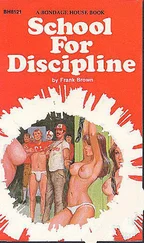“Your true friend, “Jean-Baptiste.”
His German friend writes, after only a short introduction,
“…Look here, we in Germany aren’t rich. Our soil is poorer than the French, we have no empire, and we were dragged down and impoverished by the War and the bad crops after the War. When the Führer came to power the Jews all over the world were trying to overthrow us by cutting us off from raw materials…. We are working with all our strength now to promote new inventions, so that our people can have bread and profits….”
Kurt and Jean-Baptiste have the same interests; but Kurt gets to the bottom of things, and knows where misery comes from; the little French boy has to be taught by his Nazi friend.
“…I am so sorry,” Kurt writes generously, “that you, or rather your father, is having trouble because the franc is falling…. Jews always make inflations…. On the one side, they stir up the workers to demand always higher wages, while they hinder the increase of work…. The Jew persuades the people to such madness. All those who must live on their savings are forced to spend and lose them, the Jew buys up all the beautiful possessions of impoverished families, and one fine day there isn’t a cent left. Then the Jew either lends them money at Shylock rates, or, if he thinks he has got far enough, he raises his horrible bloody Bolshevism above the mass of the despairing people. That is exactly what he is trying to do now in your France.”
Kurt paints a terrible picture, but it is clear that the catastrophe could be averted, if Jean’s fatherland, threatened France, would give itself at the last moment to Hitler. “I know,” Kurt writes, “how hardworking and modest your peasants are…. I can’t understand how they allow themselves to be hounded from one devaluation of the franc to another, losing everything while the Jew laughs up his sleeve. See here, we didn’t stick any of those mad figures on our building in the Paris Exposition. We showed only what a poor people can achieve when it is well led and hard-working, as soon as it has got rid of the Jews…. I’d be awfully glad if you’d come here; you must see how we work and produce here, and what we make out of the soil…. Until then, a hearty handshake from
“Kurt.”
* * *
One of the first Nazis in Germany was a man called Dietrich Eckart, a personal friend and admirer of Hitler’s, and at one time a considerable influence on him. He was Hitler’s prototype in anti-Semitism, above all. Since he died as early as 1923, he could be converted easily into a myth. He became “faithful Eckart,” “one of our greatest dead,” “the singer of the Party,” He has played a dominating part in German Readers, although only one poem of his is known. It begins:
Deutschland erwache!
Sturm, Sturm, Sturm!
Läutet die Glocken von Turm zu Turm!
Läutet, dass die Funken zu sprühen beginnen,
Judas erscheint, das Reich zu gewinnen,
Läutet, dass blutig die Seile sich röten,
Rings lauter Brennen und Martern und Töten.
Läutet Sturm, dass die Erde sich bäumt,
Unter dem Donner der rettenden Rache.
Wehe dem Volk, das heute noch träumt.
Deutschland erwache!
Germany awake!
Storm, storm, storm!
Let the bells ring from tower to tower,
Ring till the sparks begin to shower,
Judas appears, to win the Reich’s power.
Ring till the bell-ropes redden with blood.
Ring for the burning, the martyred, the dead.
Ring out storm, and let the whole earth shake,
Revenge to the rescue, and thunder overhead!
Woe unto those who dream today!
Germany, awake!
In commentary on the poem and what the author represents, a collection called Die Fahne Hoch (Up with the Flag) (No, 36, Neues Verlagshaus für Volksliteratur ) carried a short biography of the poet, “His father wished him to study medicine…. Suddenly, in the midst of his studies, he became very ill. He took morphia, became an addict, and remained one after his recovery. His condition was so serious, and his irritability so great, that he himself saw he could not continue that way…. He decided to find a sanatorium for nervous disorders. During his stay at the sanatorium, his first great poetical plans matured….” And the report continues, full of revolutionary pride. “Young Eckart did not allow himself to be caught up in a bourgeois profession; his father gradually realized this and stopped arguing with his son.” After that, it is naturally “comprehensible that the Jewish press rejected this booklet and suppressed it…. His father died in 1895, and left him a considerable fortune… and Dietrich Eckart made such generous use of it that within a few years there was not one cent left.” But when the frivolous young man met Adolf Hitler, “the corporal from the world which was as yet utterly unknown to him… he realized with astonishing clairvoyance the great qualities of a leader in this man, and submitted himself to Hitler unconditionally…. Thus Dietrich Eckart stands before us… the German poet whom his people will never forget, because they cannot forget him.”
They will not forget him and cannot, because the propaganda ministry will not hear of it, because he is part of the myth. This is a German poet in Hitler’s good grace: Dietrich Eckart, called, not by his enemies, but by his Nazi worshipers, a spendthrift, a morphia addict, who would not allow himself to be caught up in a bourgeois profession. He wrote miserable, bloody cant; and he did not become Hitler’s friend in spite of his weaknesses, any more than he wrote his verses in spite of them. Because of his qualities, because he was a useless, refractory wreck, he has been taken into the Nazi Valhalla, to a place beside Horst Wessel, the pimp, and Leo Schlageter, the railway wrecker. What happens inside the heads of school-children who are given such heroes?
After a meeting of the Racial Office of the Party, Dr. Bernhard Rust issued an edict, which may be summarized:
Racial Instruction is to be given in all classes. (Appropriate conclusions are to be drawn from Racial Instruction in all branches of public and private life.) The spirit of National Socialism must hold first place throughout the course. It must be enforced in order to:
1. Give pupils an insight into the relationship, causes and effects of all basic facts having to do with the science of heredity and race.
2. Impress the pupils with the importance of the science of heredity and race for the future of the nation and the purposes of the government.
3. Awaken in the pupils a sense of responsibility toward the nation, as represented by both its ancestry and its posterity; imbue the pupils with pride in the fact that the German people are the most important exponent of the Nordic race, and to influence them in favor of complete Aufnordung (Nordification) of the German people.
This is to be accomplished early enough so that no child shall leave school without a conviction of the necessity of pure blood.
The German schools consider no method that may carry out this wish of the Führer too superstitious, too brutal or clumsy.
“A child is likely to have keen vision,” the periodical N. S. Bildungswesen, in an essay on “Illustrations and Pictures for Use in Racial Instruction,” says. “It will therefore be easiest to bring the unity of the German people into his consciousness if we show him, on the one hand, pictures of racially gifted beings similar in type and, on the other, different types racially foreign to it and of varying qualities. In the matter of the Jews, such types are to be chosen which, to our way of feeling, clearly have the most unpleasant characteristics — not such representatives as have already attained a certain external similarity to the people offering them hospitality ( Wirtsvolk )…. And, not the least, emphasis must be placed on the fact that mental inferiority and confusion show in the face. The Jewish-Bolshevistic politicians and criminals offer particularly varied and extraordinarily informative material.”
Читать дальше












